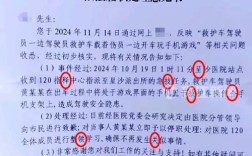jBcrypt 报错问题详解
jBcrypt 是一种基于 Blowfish 算法的密码散列函数,广泛用于密码存储和验证,在使用 jBcrypt 时,可能会遇到各种错误,本文将详细解析 jBcrypt 常见的报错问题及其解决方法,并提供相关示例代码和 FAQs,以帮助开发者更好地理解和使用 jBcrypt。

一、Invalid salt version 异常
1. 问题描述
在使用 jBcrypt 进行密码验证时,如果遇到Invalid salt version 异常,通常是由于盐值版本不匹配或使用了错误的库版本导致的。
2. 解决方法
确保使用的是正确版本的 jBcrypt 库,并且盐值的版本与库版本兼容,以下是一些具体步骤:
检查库版本:确保项目中使用的 jBcrypt 库版本一致,在 Maven 项目中,可以在pom.xml 文件中指定版本:

- <dependency>
- <groupId>org.mindrot</groupId>
- <artifactId>jbcrypt</artifactId>
- <version>0.4</version>
- </dependency>
生成和验证密码:确保生成和验证密码时使用相同的库版本和方法。
- import org.mindrot.jbcrypt.BCrypt;
- public class BCryptExample {
- public static void main(String[] args) {
- // 生成盐值
- String salt = BCrypt.gensalt();
- // 加密密码
- String hashedPassword = BCrypt.hashpw("mypassword", salt);
- System.out.println("Hashed Password: " + hashedPassword);
-
- // 验证密码
- boolean isMatch = BCrypt.checkpw("mypassword", hashedPassword);
- System.out.println("Password match: " + isMatch);
- }
- }
3. 示例代码
以下是一个使用 jBcrypt 进行密码加密和验证的完整示例:
- import org.mindrot.jbcrypt.BCrypt;
- public class BCryptExample {
- public static void main(String[] args) {
- // 生成盐值
- String salt = BCrypt.gensalt();
- System.out.println("Generated Salt: " + salt);
-
- // 加密密码
- String originalPassword = "mypassword";
- String hashedPassword = BCrypt.hashpw(originalPassword, salt);
- System.out.println("Hashed Password: " + hashedPassword);
-
- // 验证密码
- boolean isMatch = BCrypt.checkpw(originalPassword, hashedPassword);
- System.out.println("Password match: " + isMatch);
- }
- }
二、NoSuchAlgorithmException 异常
1. 问题描述
在使用 jBcrypt 时,如果遇到NoSuchAlgorithmException 异常,通常是由于加密算法不可用或未正确配置导致的。
2. 解决方法
确保 Java 环境配置正确,并且支持所需的加密算法,以下是一些具体步骤:
检查 Java 安装:确保安装了正确版本的 java,并且环境变量配置正确。
更新安全策略文件:在某些情况下,需要更新 Java 的安全策略文件以允许使用特定的加密算法,编辑$JAVA_HOME/jre/lib/security/java.security 文件,取消注释或添加以下行:
- security.provider.1=org.bouncycastle.jce.provider.BouncyCastleProvider
3. 示例代码
以下是一个处理NoSuchAlgorithmException 异常的示例:
- import org.mindrot.jbcrypt.BCrypt;
- import java.security.NoSuchAlgorithmException;
- public class NoSuchAlgorithmExample {
- public static void main(String[] args) {
- try {
- // 尝试生成盐值
- String salt = BCrypt.gensalt();
- System.out.println("Generated Salt: " + salt);
-
- // 尝试加密密码
- String originalPassword = "mypassword";
- String hashedPassword = BCrypt.hashpw(originalPassword, salt);
- System.out.println("Hashed Password: " + hashedPassword);
-
- // 尝试验证密码
- boolean isMatch = BCrypt.checkpw(originalPassword, hashedPassword);
- System.out.println("Password match: " + isMatch);
- } catch (NoSuchAlgorithmException e) {
- e.printStackTrace();
- System.out.println("Error: The specified algorithm is not available.");
- }
- }
- }
三、IllegalArgumentException 异常
1. 问题描述
在使用 jBcrypt 时,如果遇到IllegalArgumentException 异常,通常是由于输入参数不正确或无效导致的。
2. 解决方法
确保传递给 jBcrypt 方法的参数有效且格式正确,以下是一些具体步骤:
检查输入参数:确保传递给hashpw 和checkpw 方法的参数不为 null 或空字符串。
处理异常:在代码中添加适当的异常处理逻辑,以确保即使发生异常也能给出明确的错误信息。
- import org.mindrot.jbcrypt.BCrypt;
- public class IllegalArgumentExample {
- public static void main(String[] args) {
- try {
- // 尝试生成盐值
- String salt = BCrypt.gensalt();
- System.out.println("Generated Salt: " + salt);
-
- // 尝试加密密码
- String originalPassword = "mypassword";
- String hashedPassword = BCrypt.hashpw(originalPassword, salt);
- System.out.println("Hashed Password: " + hashedPassword);
-
- // 尝试验证密码
- boolean isMatch = BCrypt.checkpw(originalPassword, hashedPassword);
- System.out.println("Password match: " + isMatch);
- } catch (IllegalArgumentException e) {
- e.printStackTrace();
- System.out.println("Error: One of the arguments provided to jBcrypt is invalid.");
- }
- }
- }
3. 示例代码
以下是一个处理IllegalArgumentException 异常的示例:
- import org.mindrot.jbcrypt.BCrypt;
- import java.security.NoSuchAlgorithmException;
- public class IllegalArgumentExample {
- public static void main(String[] args) {
- try {
- // 尝试生成盐值
- String salt = BCrypt.gensalt();
- System.out.println("Generated Salt: " + salt);
-
- // 尝试加密密码
- String originalPassword = "mypassword";
- String hashedPassword = BCrypt.hashpw(originalPassword, salt);
- System.out.println("Hashed Password: " + hashedPassword);
-
- // 尝试验证密码
- boolean isMatch = BCrypt.checkpw(originalPassword, hashedPassword);
- System.out.println("Password match: " + isMatch);
- } catch (IllegalArgumentException e) {
- e.printStackTrace();
- System.out.println("Error: One of the arguments provided to jBcrypt is invalid.");
- } catch (NoSuchAlgorithmException e) {
- e.printStackTrace();
- System.out.println("Error: The specified algorithm is not available.");
- }
- }
- }
在使用 jBcrypt 进行密码加密和验证时,可能会遇到各种异常,通过理解这些异常的原因并采取相应的解决措施,可以有效地避免这些问题,合理的异常处理机制也是确保应用程序稳定性的重要手段,希望本文能够帮助开发者更好地理解和使用 jBcrypt,提高应用程序的安全性。
常见问题解答(FAQs)
Q1:如何更改 jBcrypt 的工作因子(cost factor)?
A1:可以通过调用BCrypt.gensalt() 方法并传递一个整数参数来设置工作因子。
- String salt = BCrypt.gensalt(12); // 设置工作因子为12
更高的工作因子会增加计算复杂度,从而增强安全性,但也会增加计算时间。
Q2:如何在数据库中存储和检索 jBcrypt 哈希密码?
A2:在数据库中,可以将 jBcrypt 生成的哈希密码作为普通字符串存储在密码字段中,检索时,直接读取该字段并进行密码验证即可。
- // 存储哈希密码
- String hashedPassword = BCrypt.hashpw("mypassword", BCrypt.gensalt());
- // 假设已将 hashedPassword 存储到数据库中
- // 从数据库中检索哈希密码
- String retrievedHashedPassword = getHashedPasswordFromDatabase(); // 假设此方法从数据库中获取哈希密码
- boolean isMatch = BCrypt.checkpw("mypassword", retrievedHashedPassword);
- System.out.println("Password match: " + isMatch);










